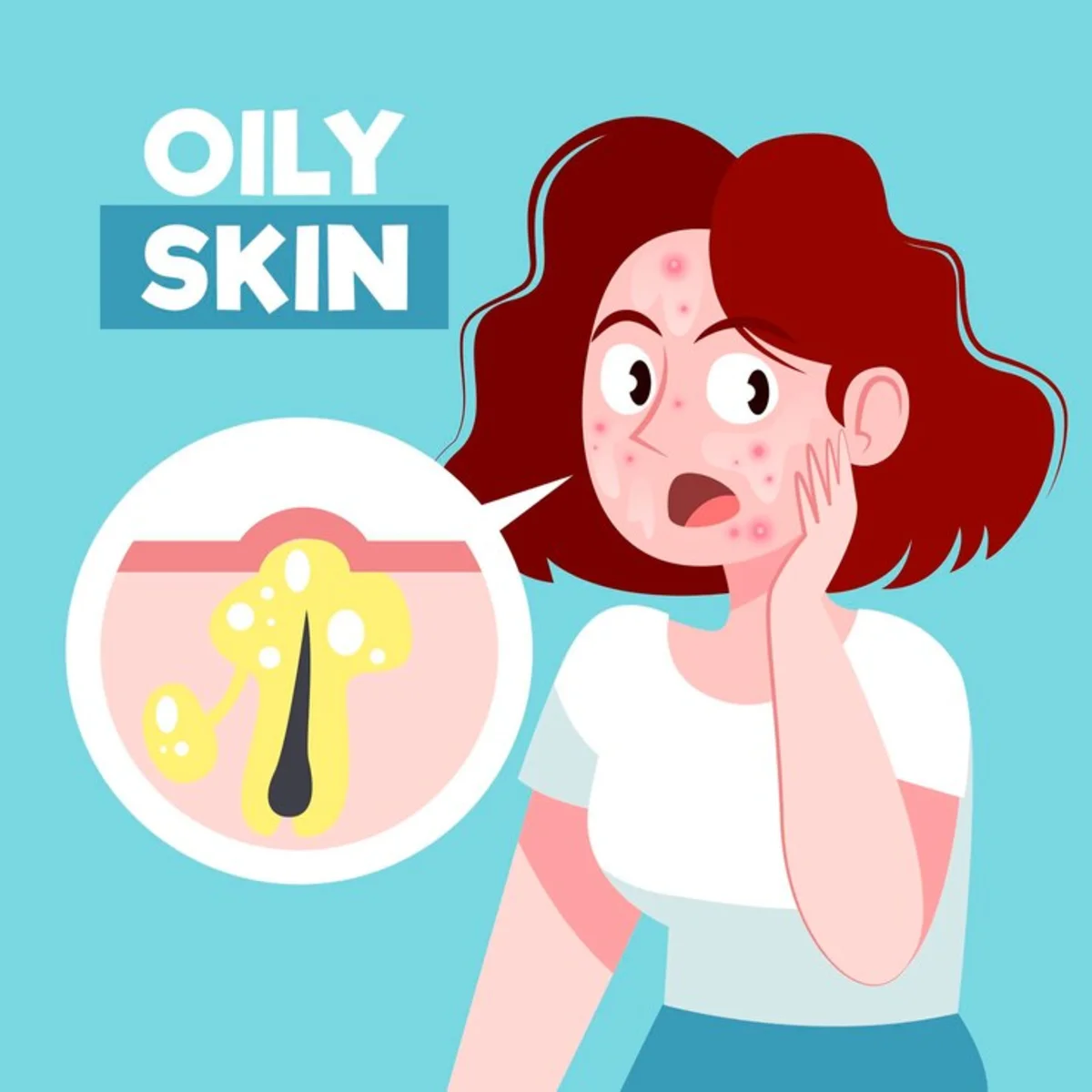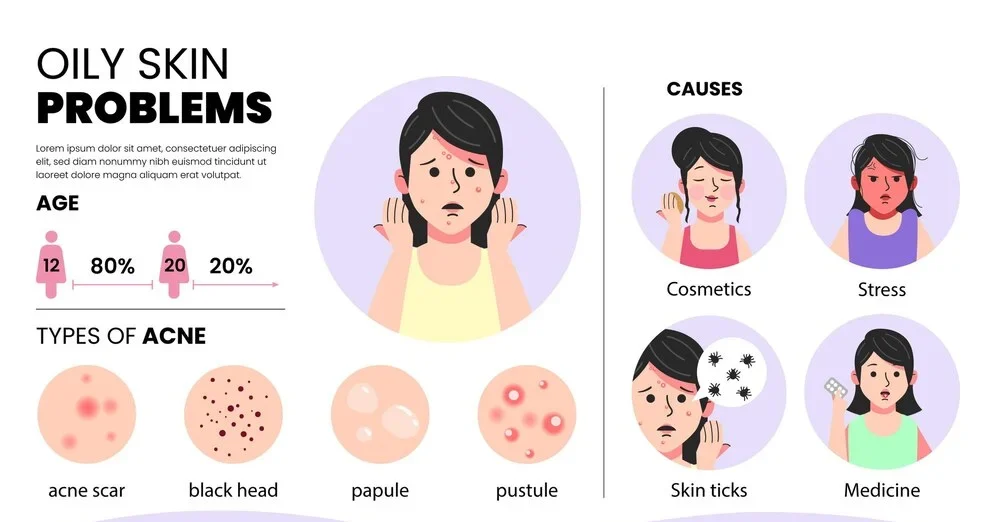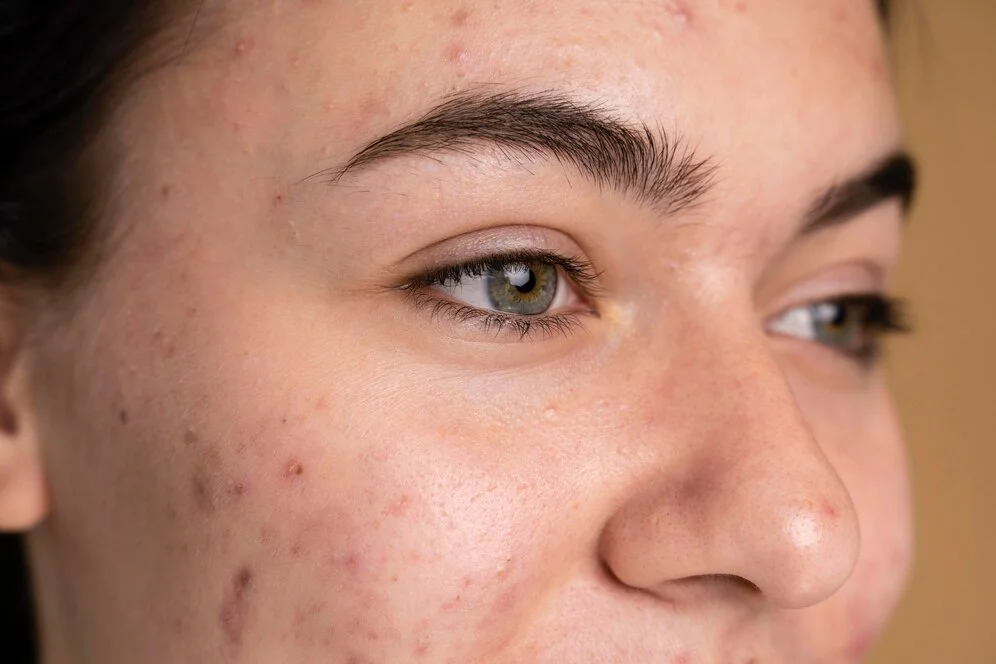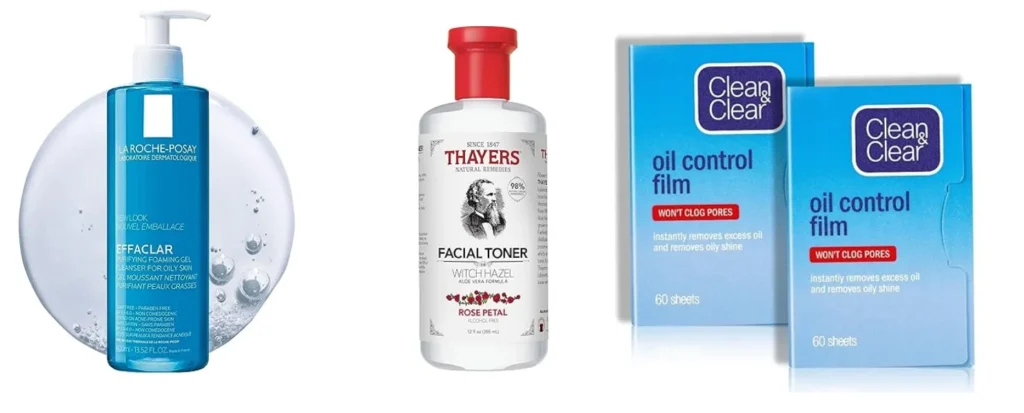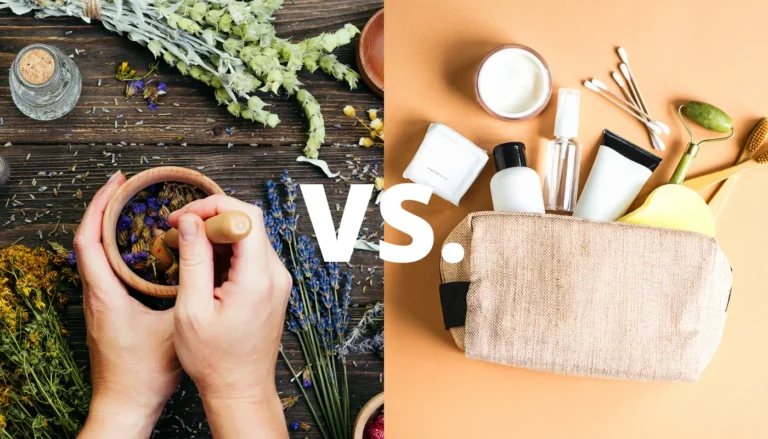What is Oily Skin? Causes and Treatment Options
Are you tired of constantly battling with shiny, greasy skin? Do you find yourself blotting away oil throughout the day, only to have it return with a vengeance? If so, you’re not alone. Oily skin can be a frustrating and often misunderstood condition, but fear not! With the right knowledge and skincare routine, you can keep shine at bay and achieve a beautifully balanced complexion. In this comprehensive guide, we’ll dive deep into the world of oily skin, exploring its causes, common misconceptions, and, most importantly, effective strategies for managing it. Say goodbye to grease and hello to radiant, healthy skin!
What Exactly Is Oily Skin?
Oily skin is a skin type characterized by excessive production of sebum, the natural oil produced by the sebaceous glands. Sebum is essential for keeping the skin hydrated and protected, but overproduction can lead to oily skin. People with oily skin often have a shiny complexion, enlarged pores, and are prone to acne breakouts.
What are the Causes of Oily Skin? 
There are various reasons why oily skin can develop. Hormonal fluctuations, particularly during puberty, pregnancy, and menopause, can trigger increased sebum production. Genetics also play a significant role, as oily skin tends to run in families. Additionally, environmental factors such as humidity and hot weather can exacerbate oiliness, as can certain skincare products and medications.
Hormonal Fluctuations
Hormones are powerful chemical messengers that regulate various bodily functions, including oil production in the skin. During key life stages such as puberty, pregnancy, and menopause, hormonal fluctuations can send sebaceous glands into overdrive, resulting in increased sebum production. This surge in oiliness is often accompanied by other skin changes, such as acne breakouts, as the skin adapts to fluctuating hormone levels.
Genetic Predisposition
While oily skin can sometimes feel like a genetic curse, it’s essential to recognize the role genetics play in determining our skin type. If oily skin runs in your family, there’s a good chance you’ve inherited the predisposition for it as well. Certain genetic factors can influence the size and activity of sebaceous glands, impacting the amount of sebum they produce. Understanding your genetic predisposition can help you better manage oily skin and tailor your skincare routine accordingly.
Age
While you don’t necessarily outgrow oily skin, your skin does evolve over time. As you age, those sebaceous glands decide to take a chill pill and produce less sebum. Aging skin loses proteins like collagen, and the oil factories slow down. So, yes, there’s a silver lining—you might not show signs of aging as quickly as your drier-skinned pals.
Environmental Influences
Our skin is constantly exposed to environmental factors that can influence its behavior, and oil production is no exception. Humidity and hot weather can be particularly problematic for oily skin types, as they can stimulate sebaceous glands to produce more sebum. Additionally, exposure to pollutants and environmental toxins can disrupt the skin’s natural balance and exacerbate oiliness. Protecting your skin from environmental aggressors with appropriate skincare and sun protection is essential for managing oily skin.
Enlarged Pores
Sometimes, our pores stretch out due to age, weight fluctuations, or past breakouts. And guess what? Larger pores love producing more oil. While we can’t shrink pores (no magical shrinking potion here), we can be extra diligent in blotting areas with enlarged pores throughout the day.
Using the Wrong Skin Care Products
Believe it or not, the products you use on your skin can also contribute to its oiliness. Using skincare products that are too harsh or comedogenic can strip away the skin’s natural oils, causing it to overcompensate by producing even more oil. On the other hand, using overly rich or heavy products can add excess oil to the skin’s surface, exacerbating oiliness. It’s essential to choose skincare products specifically formulated for oily skin and to avoid ingredients that can clog pores or irritate the skin.
Medications
Certain medications can affect hormone levels in the body, leading to increased sebum production and oily skin as a side effect. Hormonal contraceptives, corticosteroids, and lithium-based drugs are some examples of medications that may contribute to oily skin. If you suspect that your medication is causing or exacerbating your oily skin, it’s essential to consult with your healthcare provider before making any changes to your treatment plan.
Overdoing Your Skin Care Routine
Overdoing your skincare routine can backfire. Too much scrubbing, excessive exfoliation, or a lengthy regimen can confuse your skin. Instead of helping, it might trigger more oil production. Keep it simple and gentle for happy skin.
Skipping Your Moisturizer
Wait, what? Isn’t moisturizer the enemy for oily skin? Nope! Skipping it sends your skin into panic mode. It thinks, “Oh no, I’m parched!” and cranks up the oil production. Opt for an oil-free moisturizer—it’s like giving your skin a refreshing drink without the greasy aftermath.
Stress
Ah, stress—the silent saboteur of skin health. Chronic stress can trigger hormonal imbalances in the body, leading to increased sebum production and exacerbating oily skin. Finding healthy ways to manage stress, such as exercise, meditation, or spending time outdoors, can help keep oiliness in check and promote overall skin health.
Signs of Oily Skin 
Shiny Appearance
Oily skin tends to have a perpetual shine, especially on the forehead, nose, and chin—the famous T-zone. It’s like your face moonlights as a disco ball.
Large or Obvious Pores
If you’ve ever looked closely in the mirror and wondered if your pores are hosting a neighborhood block party, you might have oily skin. These pores appear more prominent due to excess sebum production.
Clogged Pores and Blackheads
Oily skin loves to play hide-and-seek with blackheads. When sebum mixes with dead skin cells, it clogs your pores, creating those pesky little black dots.
Occasional or Persistent Pimples
Oily skin is like a magnet for pimples. Those unwelcome guests—whiteheads, papules, and pustules—often crash the party uninvited.
Creating Your Oily Skin care Routine: A Step-by-Step Guide
Wash Your Face Twice Daily
Cleansing is the cornerstone of any skincare routine, especially for oily skin. Wash your face with a gentle yet effective cleanser morning and night to remove excess oil, dirt, and impurities. Look for cleansers specifically formulated for oily skin, preferably ones containing ingredients like salicylic acid or tea tree oil, to help control oil production and prevent breakouts.
Toning
After cleansing, apply a toner to further purify and balance your skin. Toners help remove any remaining traces of dirt or cleanser while tightening pores and refining the skin’s texture. Opt for alcohol-free toners with ingredients like witch hazel or niacinamide to soothe and moisturize the skin without stripping it of its natural oils.
Moisturize
Contrary to popular belief, moisturizing is essential for oily skin. Choose a lightweight, oil-free moisturizer that hydrates without clogging pores or adding excess shine. Look for moisturizers with ingredients like hyaluronic acid or glycerin to provide hydration while maintaining a matte finish. Apply moisturizer evenly to your face and neck, focusing on areas prone to dryness.
Blotting Paper
Keep blotting papers on hand to absorb excess oil throughout the day. Gently press a blotting paper onto oily areas like the forehead, nose, and chin to instantly mattify the skin and remove shine. Blotting papers are convenient for touch-ups on the go and help keep oiliness under control without disturbing makeup.
Exfoliation
Exfoliating regularly is crucial for oily skin to remove dead skin cells and prevent clogged pores. Use a gentle exfoliating scrub or chemical exfoliant containing ingredients like salicylic acid or alpha-hydroxy acids (AHAs) to slough away dead skin cells and reveal smoother, clearer skin. Limit exfoliation to 2-3 times per week to avoid overstripping the skin and causing irritation.
Sun Protection
Don’t forget to protect your skin from the sun’s harmful UV rays, even if you have oily skin. Choose a lightweight, non-comedogenic sunscreen with an SPF of 30 or higher and apply it generously to your face and neck every morning. Sunscreen helps prevent sun damage, premature aging, and skin cancer, while also reducing the risk of post-inflammatory hyperpigmentation from acne breakouts.
Retinoids
Retinoids are derivatives of vitamin A that are renowned for their effectiveness in treating various skin concerns, including oily skin. They work by accelerating skin cell turnover, unclogging pores, and reducing excess oil production. This helps to prevent acne breakouts and promote a smoother, clearer complexion. However, retinoids can also cause initial irritation and sensitivity, so it’s crucial to start with a lower concentration and gradually increase usage to minimize side effects.
Lifestyle Tips for Managing Oily Skin
In addition to a consistent skincare routine, certain lifestyle habits can help keep oily skin in check. Here are some tips to help you manage oiliness and maintain a clear, healthy complexion:
Stay Hydrated
Drinking plenty of water helps flush toxins from the body and keeps the skin hydrated from the inside out. Make it a goal to consume a minimum of eight glasses of water daily to promote the health of your skin from the inside out.
Eat a Balanced Diet
Your diet can have a significant impact on the health of your skin. Avoid greasy, fried foods and opt for a balanced diet rich in fruits, vegetables, lean proteins, and whole grains. Foods high in antioxidants, such as berries and leafy greens, can help combat inflammation and promote clear skin.
Manage Stress
Stress can trigger hormonal imbalances that lead to increased sebum production and breakouts. Practice stress-relief techniques such as deep breathing, meditation, yoga, or regular exercise to keep stress levels in check and promote a healthy complexion.
Choose the Right Makeup
When selecting makeup products, opt for oil-free or non-comedogenic formulas that won’t clog pores or exacerbate oiliness. Look for matte finishes and mineral-based products, which can help absorb excess oil throughout the day.
Avoid Touching Your Face
Your hands can transfer dirt, bacteria, and oils to your face, leading to clogged pores and breakouts. Avoid touching your face unnecessarily, and be sure to wash your hands regularly, especially before applying skincare products or makeup.
Recommended Products for Managing Oily Skin
Here are some product suggestions for oily skin that you can find on Amazon:
| Product | Description | Amazon Rating | Price |
| CeraVe Foaming Facial Cleanser | Gentle cleanser that effectively removes excess oil and impurities. | 4.6/5 | $14.99 |
| La Roche-Posay Effaclar Purifying Foaming Gel | Cleanser with zinc pidolate to reduce excess oil and purify the skin. | 4.7/5 | $22.99 |
| Thayers Witch Hazel Facial Toner | Alcohol-free toner infused with witch hazel to balance oil production and tighten pores. | 4.6/5 | $9.99 |
| Paula’s Choice Skin Balancing Pore-Reducing Toner | Toner with niacinamide and antioxidants to minimize pores and control shine. | 4.5/5 | $24.00 |
| Neutrogena Oil-Free Facial Moisturizer | Lightweight and non-comedogenic, this moisturizer provides hydration without leaving a shiny residue on your skin. | 4.5/5 | $10.00 |
| La Roche-Posay Effaclar Mat Oil-Free Mattifying Moisturizer | Moisturizer designed for oily skin, providing hydration while mattifying. | 4.4/5 | $31.99 |
| Clean & Clear Oil Absorbing Sheets | Blotting papers that quickly absorb excess oil, leaving the skin feeling fresh and matte. | 4.7/5 | $4.99 |
| NYX Professional Makeup Blotting Paper | Blotting papers infused with green tea extract for oil absorption and skin refreshment. | 4.3/5 | $6.00 |
| Aztec Secret Indian Healing Clay | Natural calcium bentonite clay mask that deeply cleanses pores and absorbs excess oil. | 4.7/5 | $12.79 |
| Innisfree Super Volcanic Pore Clay Mask | Mask formulated with volcanic clusters to control sebum production and minimize pores. | 4.5/5 | $15.00 |
These products are well-rated on Amazon and are suitable for oily skin, helping to address various concerns such as excess oil, enlarged pores, and shine control.
Seeking Professional Help
If you’re struggling to manage oily skin on your own, don’t hesitate to seek professional help from a dermatologist. A dermatologist can assess your skin type, identify any underlying issues contributing to oiliness, and recommend personalized treatments or skincare products to help you achieve your skincare goals.
Conclusion
Oily skin can be a frustrating condition to deal with, but understanding its causes and implementing effective treatment and management strategies can help you achieve clearer, more balanced skin. By adopting a proper skincare routine, making lifestyle changes, and seeking professional guidance when needed, you can effectively manage oily skin and improve your overall skin health and confidence.

